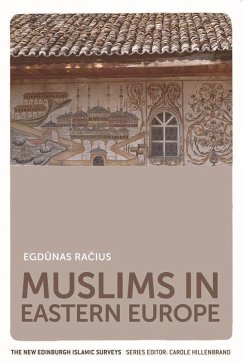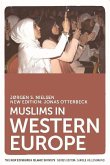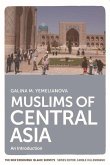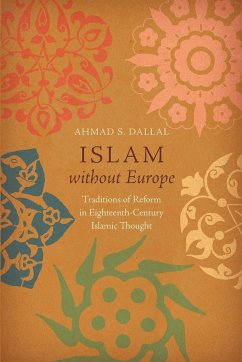'A long overdue account of a dimension of Islam in Europe which has generally been ignored in western discussions. Providing comprehensive coverage of the subject in a way that is accessible to a university audience, this has the potential to become the foundational text in the subject.' Jørgen S. Nielsen, University of Copenhagen Introduces the centuries-old history of Muslim communities in Eastern Europe The history and contemporary situation of Muslim communities in Eastern Europe are explored here from three angles. First, survival, telling of the resilience of these Muslim communities in the face of often restrictive state policies and hostile social environments, especially during the Communist period. Next, their subsequent revival in the aftermath of the Cold War. And last, transformation, looking at the profound changes currently taking place in the demographic composition of the communities and in the forms of Islam practised by them. The reader is shown a picture of the general trends common to the Muslim communities of Eastern Europe, and the special characteristics of clusters of states, such as the Baltics, the Balkans, the ViSegrad states and the European states of the Commonwealth of Independent States (CIS). Key Features . Places Muslim communities of Eastern Europe within their historical and pan-European context, establishing them as belonging in and to Europe . Provides an overview of the history and current trends in Muslim communities in twenty-one post-Communist Eastern European countries . Analyses the situation of Muslim communities in Eastern Europe on a country-cluster basis (North-Eastern Europe: Russia, Ukraine, Lithuania, Latvia, Estonia, Belarus, Moldova; the successor states of Yugoslavia: Bosnia and Herzegovina, Montenegro, Serbia, Kosovo, Macedonia, Slovenia, Croatia; South-Eastern Europe: Albania, Bulgaria, Romania; Central Europe: Poland, Hungary, the Czech Republic, Slovakia) . Provides an overview of the emerging trends in conversion to Islam among Eastern Europeans Egdunas Racius is a Professor of Islamic studies at Vytautas Magnus University, Kaunas, Lithuania. He is the Reviews Editor of the Journal of Muslims in Europe and a co-editor of the Yearbook of Muslims in Europe. Cover design: riverdesignbooks.com Cover image: Bachelors' Mosque, Berat, Albania © akg-images / De Agostini / C. Sappa [EUP logo] edinburghuniversitypress.com ISBN 978-1-4744-1578-1 [PPC] ISBN 9781474415798 [cover] Barcode
Hinweis: Dieser Artikel kann nur an eine deutsche Lieferadresse ausgeliefert werden.
Hinweis: Dieser Artikel kann nur an eine deutsche Lieferadresse ausgeliefert werden.








